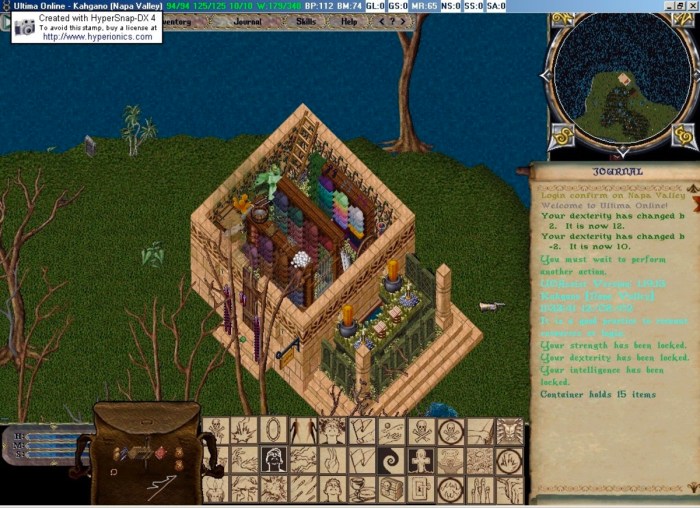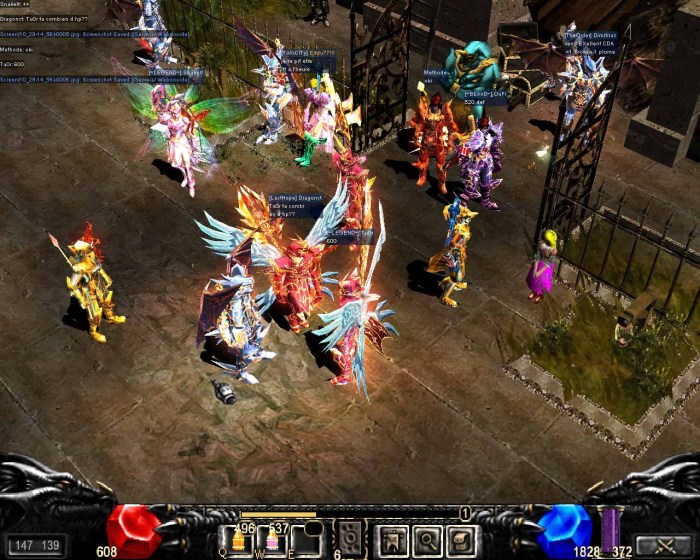Embark on a journey into the captivating realm of MMORPGs, where virtual worlds intertwine with limitless possibilities. What MMORPG stands for is not merely an acronym but a gateway to immersive experiences that redefine online gaming. Join us as we unravel the essence of MMORPGs, exploring their history, features, impact, and the vibrant communities they foster.
From their humble origins to their current prominence, MMORPGs have evolved into intricate digital ecosystems where players forge alliances, embark on epic quests, and shape the destinies of their characters. Their unique blend of role-playing, social interaction, and endless gameplay options has captivated millions worldwide.
What is a Massively Multiplayer Online Role-Playing Game (MMORPG)?

A Massively Multiplayer Online Role-Playing Game (MMORPG) is a video game that allows a large number of players to interact with each other in a virtual world. MMORPGs are characterized by their persistent worlds, which means that the game world continues to exist even when players are not logged in.
This allows players to build relationships with each other, form guilds, and participate in large-scale battles.
The role-playing aspect of MMORPGs is what sets them apart from other online games. In MMORPGs, players create characters that they can customize with different skills, abilities, and appearances. These characters then embark on quests, fight monsters, and interact with other players in the game world.
Examples of Popular MMORPGs, What mmorpg stands for

- World of Warcraft
- Final Fantasy XIV
- Guild Wars 2
- The Elder Scrolls Online
- Black Desert Online
History of MMORPGs

The origins of MMORPGs can be traced back to the early days of online gaming. In the 1970s, games like MUD (Multi-User Dungeon) and Rogue allowed players to interact with each other in text-based virtual worlds. These games laid the foundation for the development of graphical MMORPGs in the 1990s.
One of the first graphical MMORPGs was Meridian 59, which was released in 1996. This game allowed players to explore a 3D world and interact with each other in real-time. Meridian 59 was followed by a number of other popular MMORPGs, including Ultima Online, EverQuest, and World of Warcraft.
Over the years, MMORPGs have continued to evolve. Modern MMORPGs offer a wide range of features, including:
- Massive worlds with thousands of players
- Complex character customization options
- Quests and storylines that can take hundreds of hours to complete
- Social features such as guilds, chat, and voice communication
Features of MMORPGs

MMORPGs are characterized by a number of common features, including:
- Persistent worlds:MMORPGs feature persistent worlds, which means that the game world continues to exist even when players are not logged in. This allows players to build relationships with each other, form guilds, and participate in large-scale battles.
- Role-playing:MMORPGs allow players to create characters that they can customize with different skills, abilities, and appearances. These characters then embark on quests, fight monsters, and interact with other players in the game world.
- Social interaction:MMORPGs are highly social games that allow players to interact with each other in a variety of ways. Players can form guilds, chat with each other, and participate in voice communication.
- Progression:MMORPGs feature a sense of progression as players level up their characters, acquire new skills and abilities, and complete quests. This sense of progression helps to keep players engaged in the game.
Questions Often Asked: What Mmorpg Stands For
What is the core gameplay of MMORPGs?
MMORPGs revolve around character development, exploration, and social interaction in persistent online worlds. Players create and customize their characters, embark on quests, form guilds, and engage in player-versus-player or player-versus-environment combat.
How do MMORPGs differ from other online games?
MMORPGs are distinguished by their massive scale, persistent worlds, and emphasis on role-playing. They offer a vast array of gameplay options, from PvE dungeon crawling to PvP battlegrounds, and foster a strong sense of community among players.
What are some popular MMORPGs?
Some of the most popular MMORPGs include World of Warcraft, Final Fantasy XIV, The Elder Scrolls Online, and Guild Wars 2. These games have attracted millions of players worldwide and offer a diverse range of settings, gameplay styles, and social experiences.
